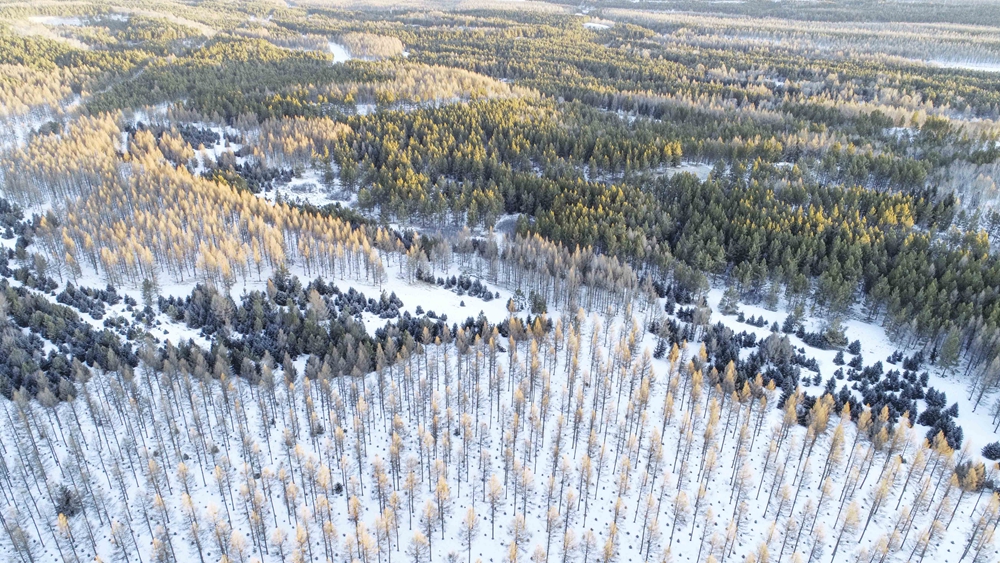On the World Wildlife Day that falls on Thursday, let's have a look at how a Kenyan elephant nursery has been rescuing calves for over four decades.
NAIROBI, March 3 (Xinhua) -- The need to draw more attention to the conservation status of some of the world's critically endangered species tops the agenda of this World Wildlife Day that falls on Thursday.
In Kenya, the elephant is one of the most vulnerable, because it not only faces dangers from poachers and human-wildlife conflict but also suffers natural calamities such as the most recent drought experienced in the East African country.
Kenya experienced one of its worst droughts in 2021 according to the National Drought Management Authority. Reports from conservationists showed that wildlife was adversely affected in both the public and private sanctuaries
The Sheldrick Wildlife Trust, located on the outskirts of the capital Nairobi, is best known for rescuing and rehabilitating orphaned elephants amongst other wildlife.
Edwin Lusichi, the head keeper told Xinhua that the orphanage had received the highest number of rescued animals recently following the drought.
"In a span of three months we received more than ten elephants which is not the norm and all those that came in were victims of starvation due to drought and that is why it has really affected all animals out in the parks," said Lusichi.
The baby elephant orphanage is world-renowned for its work in the protection of the biggest land mammals in the world. The trust has provided the most ideal conditions and care required.
"When we receive any baby elephants in the nursery we have to give them very close attention because they have lost their mother or they don't have a mother, so we become the mothers," said Lusichi.
"Elephants are social animals and so once they come in we have to ensure that they have a keeper or somebody with them all the time so that they feel they are comfortable, they feel like they are in a family, they feel relaxed," he added.
The keepers feed them frequently at intervals of three hours as the baby elephants suck their mothers every ten minutes when they were born and the duration becomes longer as they grow old.
On November 8, 2021, tourists in Tsavo East national park along the Kenya coast reported a calf alongside its dead mother. He had fallen victim to the prolonged drought.
"This is Choka and Choka is one of the young orphans in the nursery, he is actually the second youngest, he is about 15 months, he was rescued from Tsavo conservation area, he is a starvation victim, his mother died from starvation and he was found standing next to the body of the mother," said Lusichi.
Although the orphanage has success stories, Lusichi told Xinhua that it has been an expensive affair as the trust depends on well-wishers. There are 22 calves at the orphanage currently.
"It is actually very expensive and that's why it makes the whole process of rescuing and rearing these orphans before we release them back into the wild becomes very expensive," he said.
Since the Sheldrick Wildlife Trust was founded in 1977, over 260 elephants have successfully gone back into the wild and some of those that have gone back into the wild have given birth to the newborn wild babies, he said.
Video Reporter: Liu Chang, Li Cheng, Ruth Wangara, Eric Nzioka.












